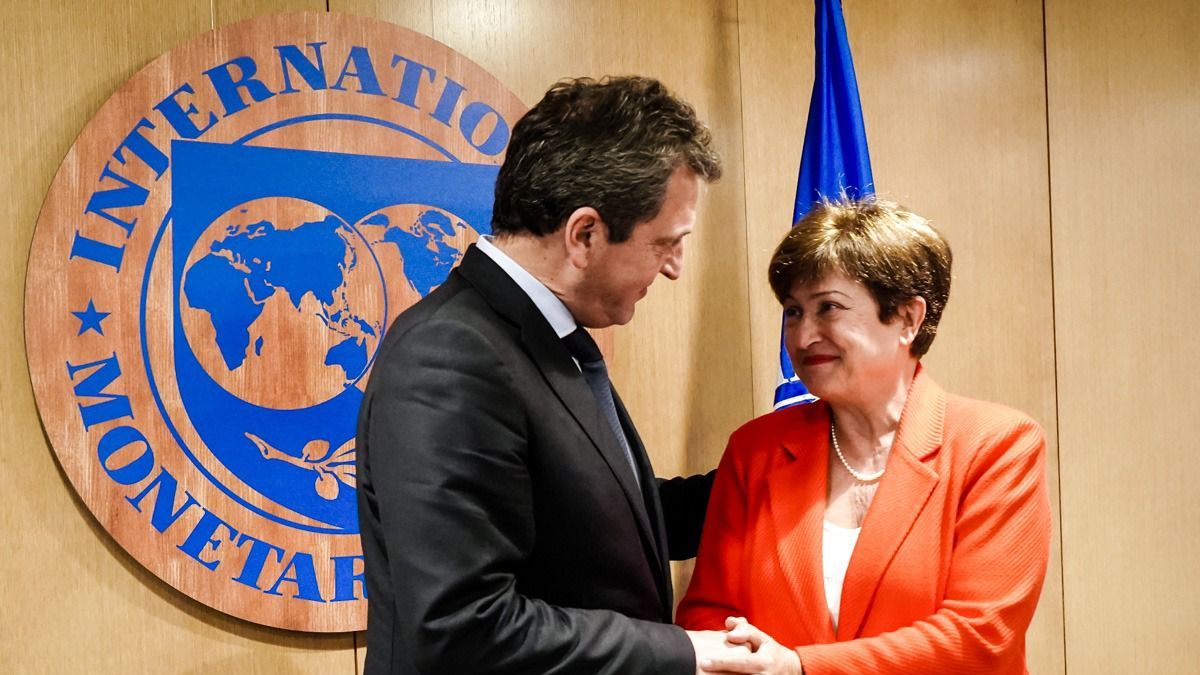The deputy minister was also part of the meeting with Georgieva Gabriel Rubinstein and chief adviser Leonardo Madcur. They were joined by the president of the Central Bank, Miguel Pesce; and the now head of Banco Nación and former minister Silvina Batakis, Both arrived in Washington in the last few hours.
An important point is that both the Government and the IMF maintained that the “annual goals”, which are those that appear in the program closed in 2022, will not be touched. Strictly speaking, it was Minister Massa himself who told Ambit: “The program with the IMF has objectives and we have to work to fulfill them because it is part of the commitments that Argentina assumed as a country.”
If you think about it, this is the most relevant moment for the tour that the Tigrens undertook almost a week ago and that saw him hyperactive with numerous meetings in the political heart of the United States, including the one he held this morning at the Department of the Treasury, a few meters from the White House, with David Lipton, special adviser on international affairs to Secretary Janet Yellen. Also at the meeting were Michael Kaplan, Assistant Secretary for Western Hemisphere Affairs, and Andy Baukol, Under Secretary for International Affairs.
As it was told, Massa’s idea was not to put into play those patiently cultivated implicit endorsements of a political nature while it was not necessary: he wanted to consolidate a view of consensus with the IMF staff, a route that allows him to look forward, without involving the political wing of Washington.
The minister’s thoughts will now turn to the prompt submission to Congress of the Budget 2023. It will be September 14. Apart from growth and inflation projections, Massa repeats that this year will be fulfilled with the reduction of the deficit to a level of 2.5% of GDPand that the commitment to the IMF for 2023 will also be included in the bill, that is, a deficit of 1.9%. If you think about it, Massa returns to Buenos Aires with the endorsement of the IMF and the political backing of the White House, but conditional on winning the parliamentary contest. What excites Washington is this: that of all the elements that Minister Massa has at hand to meet the goals, the most immediate and possible is the exercise of fiscalism. Said in Creole, if he cannot drastically modify what happens with the reserves in the short term, he can do so in relation to public spending and the budgetary commitment.
Massa’s idea is that beyond the negotiations with the IMF, the objective is and must be in the future and at all times, to accumulate reserves in the BCRA because, according to those around him, the official believes that, apart from other things, it is also a guarantee of governability.
As mentioned, in terms of IMF demands, for the Government there are two factors that must be incorporated into the equation: on the one hand, that the agreement was signed some time before the economic consequences of the war between Russia and Ukraine, which could enable new talks in the near future, but not from the Government but from the organization itself and even within the framework of the United Nations.
Source: Ambito
David William is a talented author who has made a name for himself in the world of writing. He is a professional author who writes on a wide range of topics, from general interest to opinion news. David is currently working as a writer at 24 hours worlds where he brings his unique perspective and in-depth research to his articles, making them both informative and engaging.




